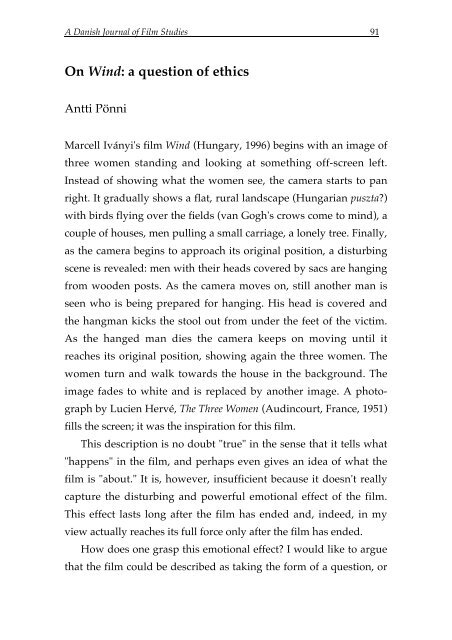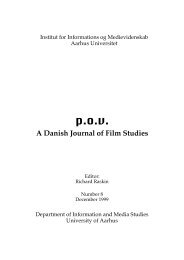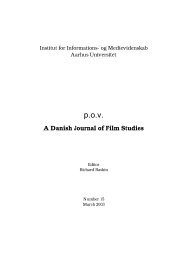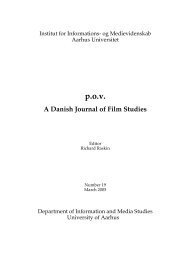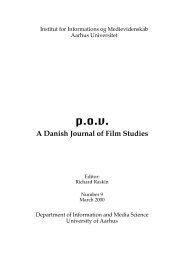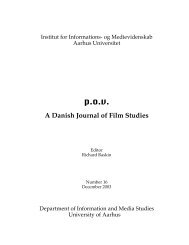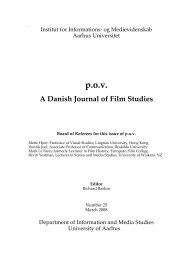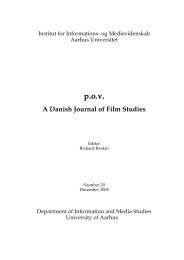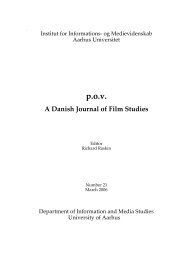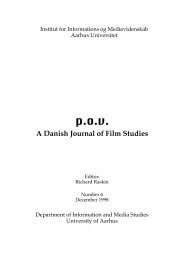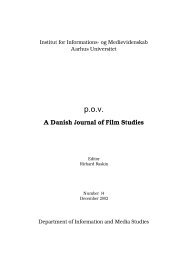The Face of Time - POV - Aarhus Universitet
The Face of Time - POV - Aarhus Universitet
The Face of Time - POV - Aarhus Universitet
You also want an ePaper? Increase the reach of your titles
YUMPU automatically turns print PDFs into web optimized ePapers that Google loves.
A Danish Journal <strong>of</strong> Film Studies 91<br />
On Wind: a question <strong>of</strong> ethics<br />
Antti Pönni<br />
Marcell Iványi's film Wind (Hungary, 1996) begins with an image <strong>of</strong><br />
three women standing and looking at something <strong>of</strong>f-screen left.<br />
Instead <strong>of</strong> showing what the women see, the camera starts to pan<br />
right. It gradually shows a flat, rural landscape (Hungarian puszta?)<br />
with birds flying over the fields (van Gogh's crows come to mind), a<br />
couple <strong>of</strong> houses, men pulling a small carriage, a lonely tree. Finally,<br />
as the camera begins to approach its original position, a disturbing<br />
scene is revealed: men with their heads covered by sacs are hanging<br />
from wooden posts. As the camera moves on, still another man is<br />
seen who is being prepared for hanging. His head is covered and<br />
the hangman kicks the stool out from under the feet <strong>of</strong> the victim.<br />
As the hanged man dies the camera keeps on moving until it<br />
reaches its original position, showing again the three women. <strong>The</strong><br />
women turn and walk towards the house in the background. <strong>The</strong><br />
image fades to white and is replaced by another image. A photograph<br />
by Lucien Hervé, <strong>The</strong> Three Women (Audincourt, France, 1951)<br />
fills the screen; it was the inspiration for this film.<br />
This description is no doubt "true" in the sense that it tells what<br />
"happens" in the film, and perhaps even gives an idea <strong>of</strong> what the<br />
film is "about." It is, however, insufficient because it doesn't really<br />
capture the disturbing and powerful emotional effect <strong>of</strong> the film.<br />
This effect lasts long after the film has ended and, indeed, in my<br />
view actually reaches its full force only after the film has ended.<br />
How does one grasp this emotional effect? I would like to argue<br />
that the film could be described as taking the form <strong>of</strong> a question, or


